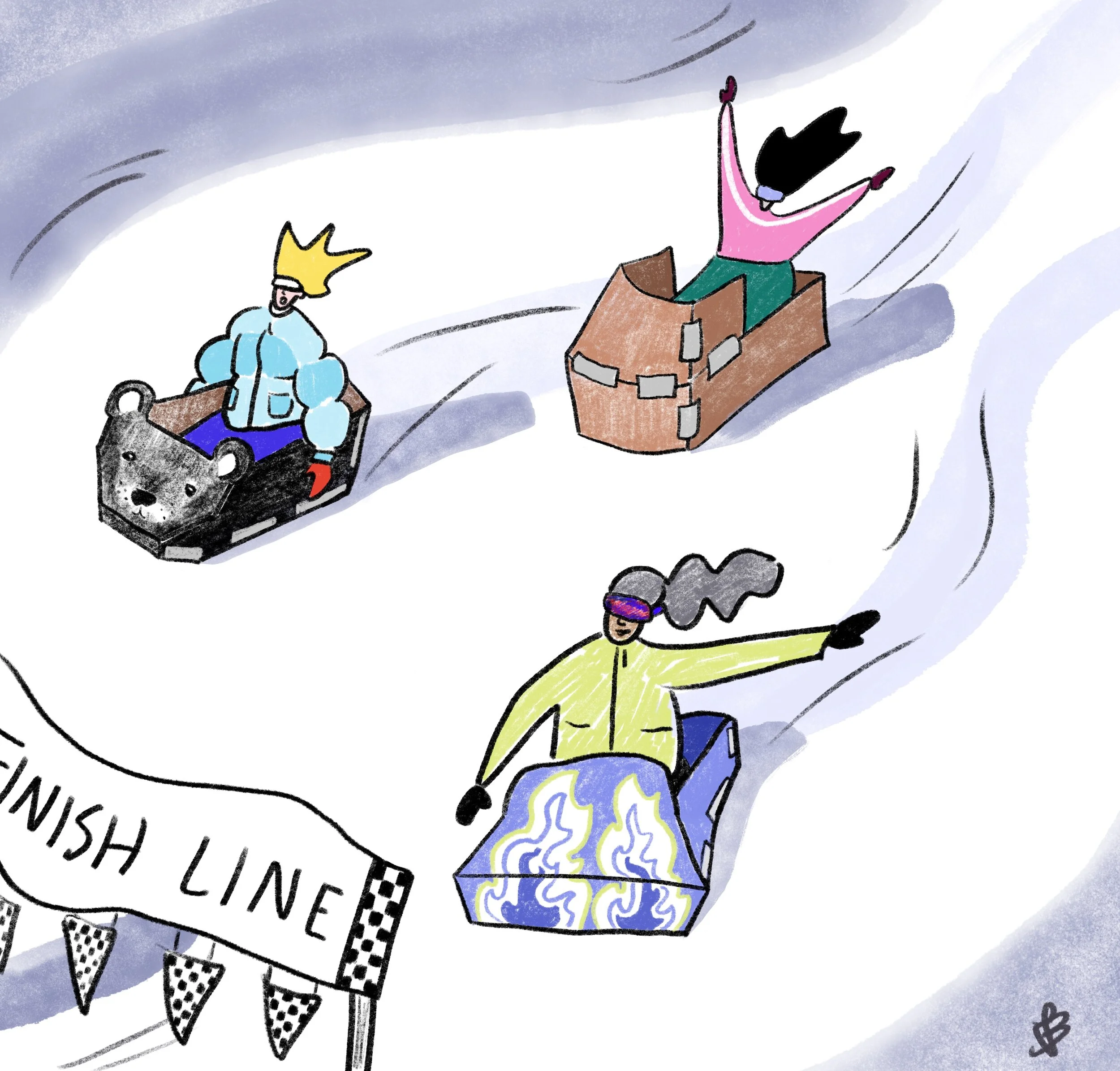The lost year: Essex Wrestling reflects on being one of only Vermont high school sports to have no competitive season
An Essex High wrestler participates in the 2020 Michael J. Baker Classic. Photo by Mike Nosek/Essex Reporter.
On the heels of top placements in state and regional tournaments during the 2019-20 school year and increased interest, the Essex High School (EHS) varsity wrestling team was poised to build on strong showings this past winter.
Then the COVID-19 pandemic hit, making the close-contact sport nearly impossible to play safely. Coach Ira Isham has been with the Hornets for the past 15 years. He says one of the most disappointing things about losing the season was stopping the team's momentum.
“I would say 2-3 years ago we had like 15 kids on our team, and we ended last year with 30. We've seen that also drive the success of our program,” Isham said.
The 2019-20 Hornets finished their season second in Vermont and placed second at the New England tournament. Isham says the team's success had an impact on rising wrestlers at EHS.
“Their success became, for younger guys, something to strive towards. Our younger guys weren’t fully bought in, and I think last year’s season kind of solidified that,” Isham said.
Gill Stawinski is a junior at EHS and has been wrestling since he was in first grade.
“The team is such a close-knit group of people” Stawinski said. “It's kind of like a family. And practice is so hard. It's always such a grind. So it's like you're building each other up as well as yourself.”
Stawinski was one of the many wrestlers on the team who had been eager to jump into the 2020-21 season after the immense success of the previous season.
“Last year, that was such a motivating year, and just how our team ended up doing at states and New Englands was so inspirational for all of us that we wanted to just keep working. We were expecting to work super hard in the offseason, and then COVID happened. And all of our goals and plans got shut down,” Stawinski said.
COVID not only interfered with the winter wrestling season but also offseason training. After seeing how much this affected the team’s growth, Isham and the other wrestling coaches, along with the indoor track coaches whose athletes also lost their season, worked to find a way to get kids participating in sports again.
After working with Essex’s athletics director, Isham was able to safely open the school’s weight and wrestling rooms. Abiding by COVID precautions, Isham helped set up a practice schedule that allowed the 14 current wrestlers to practice together.
Seven of the wrestlers were in the weight room while the other seven practiced non-contact drilling in the wrestling room before swapping for the second half of practice.
Isham is the first to admit that the system isn’t perfect and the wrestlers still missed competing.
“If you were eventually going to get into full-contact drilling, you could deal with it for a couple of weeks,” Isham said. “I think the kids initially loved it because they were finally getting into it, but you can tell over five or six weeks it was draining them a little bit.”
This is part of the reason that practice is happening three times per week as opposed to five. The other reason, Isham says, is that training aggressively becomes more difficult when teams know they won’t be able to compete.
“It's hard to train five days a week when there's no competition in your foresight,” Isham said. “You can even see it with all the other sports when they were still in that, like: you can practice, but we don't know if we're going to have games yet. That was getting to them in terms of, ‘We're going to practice, and we don't even know if we're going to play a game.’”
Many sports have pursued a season, because not doing so would dramatically impact college recruitment prospects for their team’s athletes. While Isham says this is not as big of a problem for wrestlers — most are recruited privately or at a handful of tournaments — the lost season has been impactful in equally negative ways.
“Where kids are impacted is 14 weeks of growth in their sport. So they're going to be impacted going to these national competitions, because those kids have been wrestling – live, hard-contact drill practices. Our kids haven't had contact with wrestling drilling for over a year at this point,” Isham said.
While other nearby states like Connecticut and Massachusetts also cancelled their wrestling seasons, New Hampshire has had a modified season. Seeing this and other wrestlers competing around the nation has been hard for the Hornets, Isham said, as they have had to sit out.
“It's not the biggest sport in the state of Vermont, but it means a lot to kids who need something. There are a lot of kids who do this where that's all they have. So to have that taken away from them is rough,” Isham said.
Stawinski has also been looking for ways to get the wrestlers back involved. Fit 2 Excel, a gym located in Essex Junction, is owned by Stawinski’s parents. They made a recently cleared club wrestling team that will practice safely at their gym. While the club will not start practicing until late spring, Stawinski says his fellow wrestlers are already excited.
“We got like 50 people already interested. Once that gets up and running, we can train hard for next year,” Stawinski said.








